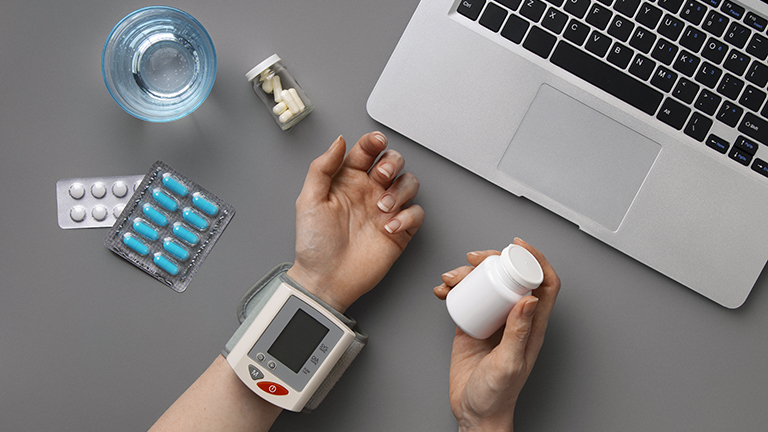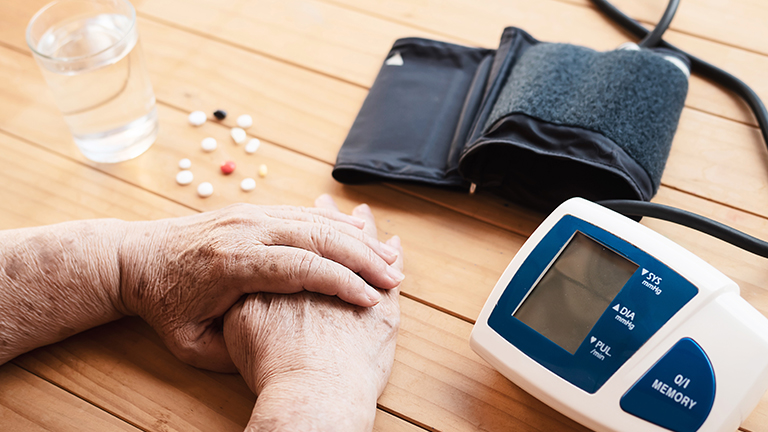🕥 Estimated reading time: 7 minutes
Blood pressure medications play a big role in keeping hypertension in check and stopping bigger issues like heart disease, stroke, and kidney trouble. You’ve got several types—ACE inhibitors, beta blockers, diuretics, calcium channel blockers. When people take these meds, stick with some lifestyle tweaks, and keep an eye on their numbers, they can manage blood pressure safely. This approach works for folks all over the world.
Introduction
Types of Blood Pressure Medications
Let’s talk about blood pressure meds. There isn’t just one kind—doctors have a whole toolkit, and the best pick depends on your health, age, and what else you’re taking.
First up, ACE inhibitors. These guys—like lisinopril, enalapril, and ramipril—work by stopping your body from making angiotensin II, a chemical that tightens up blood vessels. Less angiotensin II means your blood vessels relax and your blood pressure drops. They’re especially helpful if you have heart failure, diabetes, or kidney problems.
Next, beta blockers. These slow down your heart and make it work less hard. If you’ve got heart disease or you’re recovering from a heart attack, your doctor might hand you a prescription for metoprolol, atenolol, or propranolol.
Then there are diuretics, or “water pills.” They help your kidneys flush out extra salt and water, which brings your blood pressure down. Thiazide diuretics—hydrochlorothiazide is a big one—are a go-to for long-term control.
Calcium channel blockers—like amlodipine or diltiazem—block calcium from getting into the muscle cells of your heart and blood vessels. That keeps the vessels relaxed and lowers your pressure.
There’s more: alpha-blockers, central agonists, vasodilators. Doctors turn to these when the usual meds aren’t cutting it or if someone’s blood pressure just won’t budge.
Bottom line: There’s no one-size-fits-all. Your doctor will figure out what fits your life and health best.
How Blood Pressure Medications Work
Blood pressure meds do a few different things. Some, like ACE inhibitors, open up your blood vessels. Others, such as diuretics, help your body get rid of extra fluid. Knowing how these drugs work makes it easier for people to stick with their treatment and avoid problems down the road.
Choosing the Right Medication
Choosing the right medication really comes down to a few things—your age, race, any other health issues you’ve got, and how your body handles side effects. Doctors usually pick one medicine to start with. If that doesn’t do the trick, they’ll tweak the dose or mix in another type until your blood pressure settles where it should be.
Side Effects and Precautions
Blood pressure meds come with their own set of side effects. ACE inhibitors sometimes make you cough or push up your potassium. Beta blockers can leave you feeling wiped out, maybe even give you cold hands and feet. Diuretics mess with your electrolytes, and calcium channel blockers? You might notice some swelling or feel dizzy. The best way to handle all this is to check in with your doctor and keep an eye on things.
Lifestyle Changes That Support Medications
Medications work best when you pair them with some real changes in your daily routine. Try cutting back on salt, get moving more often, keep your weight in check, drink less alcohol, quit smoking, and find ways to handle stress. All of this helps your blood pressure meds do their job.
Monitoring and Managing Blood Pressure at Home
When people check their blood pressure at home, they can see how they’re doing and make smarter choices about their treatment. Automated cuffs make it easy, and keeping a simple log gives doctors the info they need to tweak medications if something’s off.
Common Drug Interactions to Watch For
Mixing blood pressure meds with other prescriptions or even over-the-counter stuff can cause some nasty side effects. Before you start anything new—like NSAIDs, decongestants, or herbal supplements—talk to your doctor. It’s just safer that way.
Expert Opinion
Dr. John Smith, a cardiologist at the Mayo Clinic, emphasizes, “Managing blood pressure is not just about medication; a comprehensive approach including lifestyle changes and regular monitoring is essential. Patients should work closely with their healthcare providers to personalize treatment.”
Global guidelines by the National Institute for Health and Care Excellence (NICE) and the American Heart Association reinforce individualized treatment plans and adherence strategies.
Conclusion
Managing blood pressure isn’t just about popping a pill and hoping for the best. You need to know what each medication does, how it works in your body, and what side effects to watch out for. But honestly, medication’s only part of the story. Keeping an eye on your numbers, sticking to your doctor’s plan, and making smart choices in your daily routine all matter just as much. When you combine solid medical advice with changes like eating better or moving more, you really cut down your risk for heart disease and stroke. With the right treatment tailored to you—and some help from global guidelines—hypertension doesn’t have to run your life.


